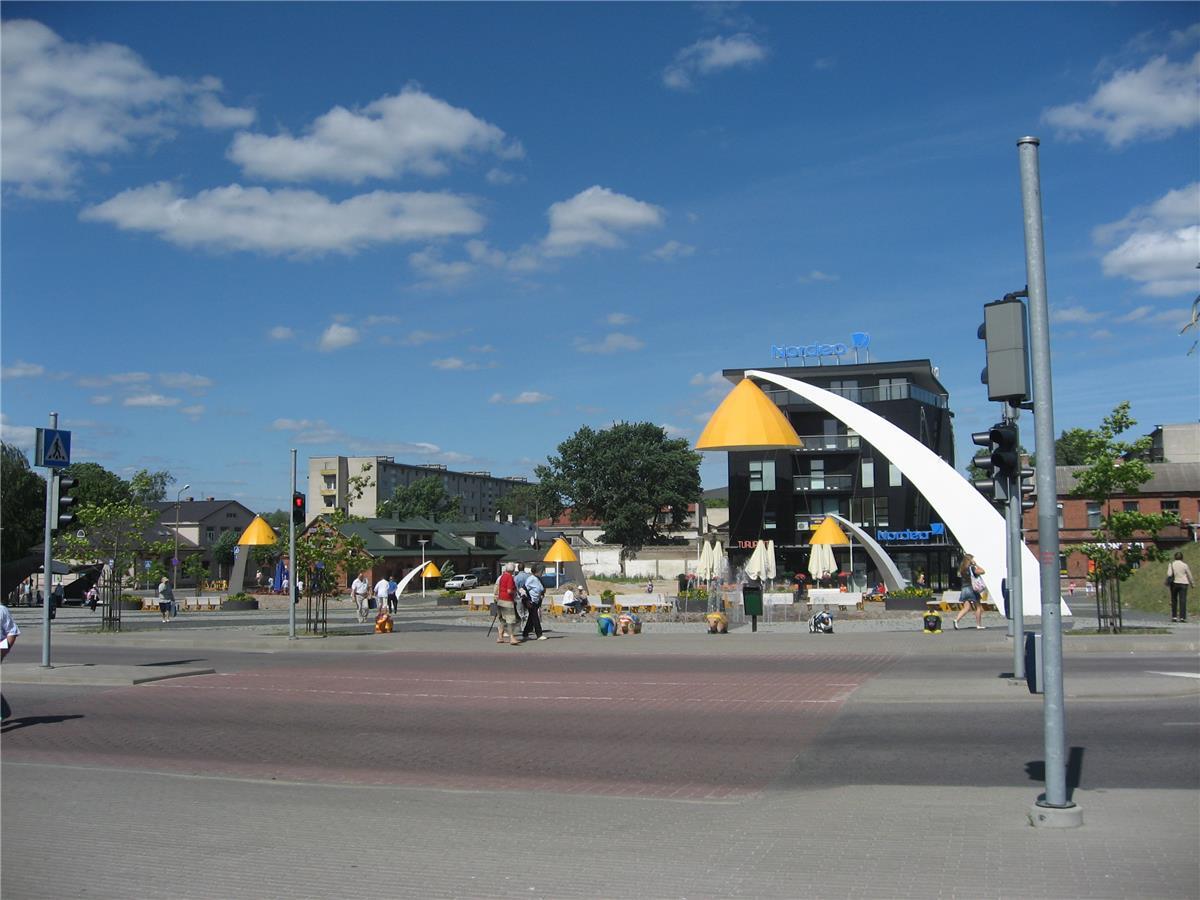Sustainable Energy Action Plan targets have been fulfilled already now, many years before the deadline in 2020. Rakvere Smart House Competence Center - site for Beta testing of various building automation and environmental technologies ranging from not energy efficient historical heritage building to the most advanced nearly zero energy building
Project of building unique Beta testing environment was initiated in 2009 by a group of local universities and regional development organisations. Development of the centre was supported by Enterprise Estonia regional development support funds in amount of 3,2 mill EUR. Idea to set up home automation test facilities outside of larger cities came as result of analysis of local smart specialisation strategy. Prerequisites of initializing the center were created by both Rakvere city which had signed in February 10th 2009 Covenant of Mayors obliging to reduce CO2 emissions by more than 20% by 2020. Sustainable Energy Action Plan targets have been fulfilled already now, many years before the deadline in 2020. Other prerequisite was large scale training of IT personnel in vocational schools and high schools in Rakvere area giving idea to build local centre dedicated to building automation testing. From August 2014 building of nearly zero energy centre was commenced and the center will be operable by June 2015. Even before test environments are ready there is large international interest to the centre and the first international cooperation has begun.

Centre is built from scratch and will be fully operational by July 2015. In building process innovative approach of BIM –Building Information Modeling was used as one of the first cases in Estonia. Both enterprises and endusers of technology need one neutral place where to get the most updated and neutral information from. Private companies are profit driven and therefore customers are sometimes confused because neutral and impartial information about new automation solutions real effectiveness is hard to obtain.
For more information and online archive of all training materials regarding building automation topics see www.rakveretarkmaja.ee
Novel feature of the innovation is preparation of unique test facilities ranging from low energy efficiency historical heritage building to highly efficient nearly zero energy building. Innovation is timely because EU has urged all member countries to build only nearly zero energy buildings by 2020. This target assumes fundamental changes to be made in building process as such, also new materials should be used and zero energy assumes local energy production and this in turn assumes extensive use of automation systems. Companies developing automation solutions have had no place where to test their products in real life situation. Typically Alfa tests are made in laboratory conditions and this is not an obstacle for majority of companies. Beta testing in real conditions and living lab environment was not available for SME companies and Rakvere Smart House Competence Centre helps now to overcome this barrier. There is no similar centre in Estonia, Baltics or even North Europe.
Innovation is based on interviews and investigations of needs of SME companies who told they lack resources to set up their own full scale test facilities. Also SMEs need demonstration site of their innovations in order to gain credibility, test innovative solutions and convince their potential clients. One of the learning points was need to further develop BIM technology as it resulted in various technical difficulties in practical use. However it gives opportunity to achieve smooth information flow from architect to builder, from builder to the service company. Systematic development is achieved by setting investigation priorities for the centre. One example of learning was realisation that besides initial focus solely on building automation also automation outside the building in the surrounding city room is important. Therefore centre corrected recently its strategic direction to devote more attention to Smart City applications.
Innovation is oriented towards needs of innovative companies working out environmentally friendly solutions. It is already now addressing needs of the nearest future as all EU member countries are committed to build nearly zero energy buildings by 2020. In order to reach this demanding goal we have to act already now, because change in companies and building practice takes several years. Centres core competence is in Beta testing of building automation solutions but we are exceeding our clients expectations by applying also other most up-to-date technologies like energy wells, steered curtains and grey water use as part of our technological solution
Even when the process of building physical premises is on the half way to full realisation the international interest to this innovative project has already reached its peak. The first cooperation plans are already prepared with Latvian neighbours to disseminate results of heritage house brick wall sensor system and to apply results in other heritage buildings. Also visitors come to our centre from outside of EU, from Asia, US and other regions of the world. Local impact is targeted at educational institutions from where students are coming to take part of development work in the Centre. For example students ideas where mapped together with Garage48 (www.garage48.org) foundation to brainstorm new ideas of automation solutions which could serve as basis for international entrepreneurship. These kind of activities help to bring in life twofold mission of the Centre – develop local entrepreneurship in Rakvere area and apply new automation solutions to reduce energy consumption and add comfort and functionality for end users worldwide.
Contact
Mr. Andres Jaadla - City Counceler
e-mail: andres.jaadla@gmail.com
Website